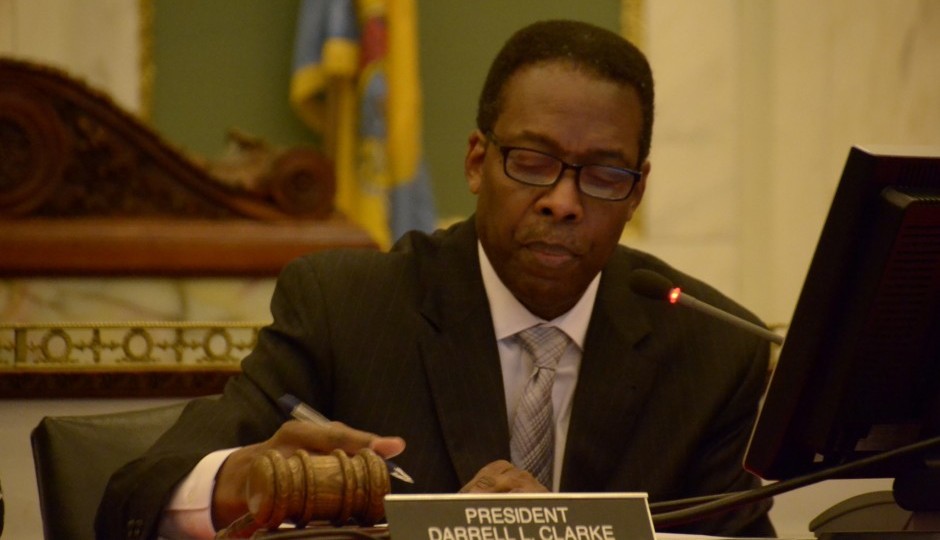Insider: How to Stop the Annual School District Vs. City Council Smackdowns

How the School District can turn that frown upside down | Photo Copyright of the Philadelphia City Council. Produced and Edited by Monika Shayka and Michael Falconi.
(Editor’s note: This is an opinion column from a Citified insider.)
This is school advocates’ most dreaded time of the year: city budget season. If there’s one thing all education advocates can agree on, it’s that the process of funding our schools is broken. The timing is all wrong and the discussion always seems to lack substance, directing attention away from what matters. How do we change this?
Council members argue for stronger accountability and transparency – they understandably don’t want to spend more money without guaranteeing something better for families and their constituents. The District reasonably argues for more funding – they need recurring funds to match rising costs, and they have agreed to open their books and provide endless accounting of spending.
What’s missing from the debate is a bridge that would span the divide between Council and the District: specific annual goals to match needed investment.
Superintendent Hite’s Action Plan 3.0 lays out a few big goals: 100 percent of eight year olds reading on grade level, 100 percent of students college or career-ready, and 100 percent of schools will have great principals. These are long-term ambitions worthy of Philadelphia’s youth. But they aren’t meaningful goals in the context of an annual budget. Everyone knows it will take decades to achieve these goals citywide. They’re not realistic nor specific enough to drive a thoughtful debate around yearly school funding.
To his credit, Mayor Nutter started his tenure with a big, specific goal: doubling the number of college graduates in Philadelphia. That has driven him to propose significant increases in the City’s investment in education. But now that many of those investments have occurred, and too many public schools show little or no progress overall, Council is right to ask how new funding is going to make a difference.
What the District needs more than anything is funding stability – a more predictable and earlier budget process paired with recurring revenue streams. To get there, the City and the District should set some goals around school funding: First, what outcomes should Council expect at the end of the year as a result of increased funding?* For example, how much should we progress this year toward our goal of 100% college-readiness? Second, what will the City commit as a target share of recurring revenue (vis-à-vis the state) to invest in those outcomes? Then, the District can report back to Council on the goals at the start of the next budget cycle.
While every city has different tax structures and socioeconomic situations, there is no question that Philadelphia has one of the smallest local funding shares of big East Coast cities (see page 8 of a January 2015 Pew report). As a recent Citified analysis showed, City Council deserves credit for helping to correct that discrepancy by increasing revenue over the past few years. But recent increases haven’t included enough recurring, growing revenue streams. Instead, we have seen one-time stop gaps (the grant in 2013), a non-growing revenue stream (the $120M from increased sales tax is capped at that level), and a declining revenue set to expire in four years (the 2014 cigarette tax). If we projected this graph outward to 2016 and beyond, the City’s line would slightly dip and flatten out – it won’t come close to matching the growth of increasing costs.
The City needs to be planning – and taking needed action this year — to maintain a steady share of overall school funding because we know the District’s per student expenditures will keep rising. The School District released an independent analysis last month showing that while teachers have not received raises in three years, average teacher compensation has increased 14 percent due to the rising cost of benefits and pensions. If the City doesn’t set a path for recurring revenues that will rise gradually over time, we will be locked into this same sort of budget drama every year, and schools are forced to make costly and damaging cuts elsewhere, as we have seen over the past several years.
One last important note: in the seemingly endless debate over how to secure and spend funds, we can’t forget what’s possible when we invest resources in our city’s great principals and teachers. In times of budget austerity, it has been disheartening – but sometimes understandable – to hear so many people cite the challenges of urban education as a reason not to do things differently. From one side: What’s the point of pouring more money into Philadelphia’s public schools if nothing ever changes? From the other: Is it fair to demand better performance from under-resourced schools that serve our highest-need students? While politicians and advocates sit and debate at the crossroads, educators across the city are moving the city forward by proving that children of all backgrounds can and do achieve great things when we invest in them. Specific, shared goals will help everyone work together because we all agree there’s no greater investment in the future of Philadelphia more worthy than our public school students.
*Some will read “outcomes” as code for test scores. That’s too simplistic. Outcome goals should be grounded in the mission of the District (to paraphrase): preparing and empowering all students to achieve their full potential. While that’s broad and hard to measure, annual goals could be established using the District’s new School Progress Reports. The reports include academic achievement measured by testing, but they also incorporate other metrics like safety, climate and parent and student surveys. The District is continually working to improve this tool.
Kristen Forbriger is public affairs director at the Philadelphia School Partnership and executive committee member of PhillyCORE Leaders. Follow her on Twitter @kforbriger.